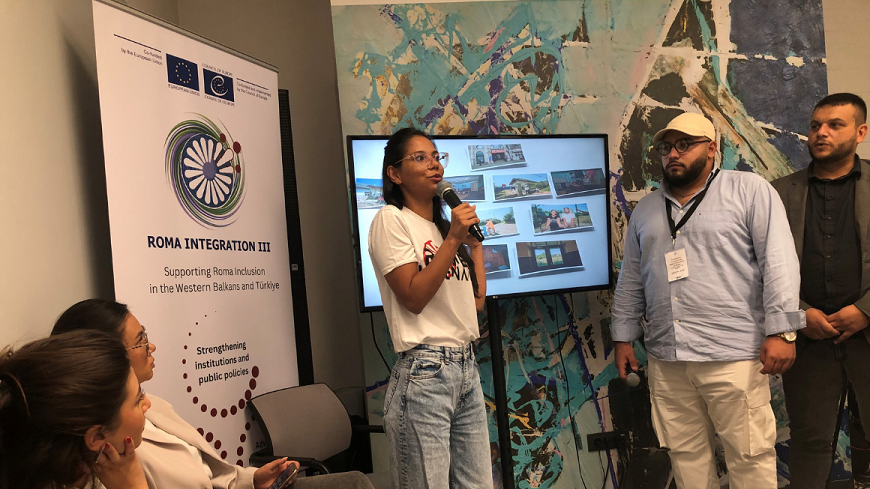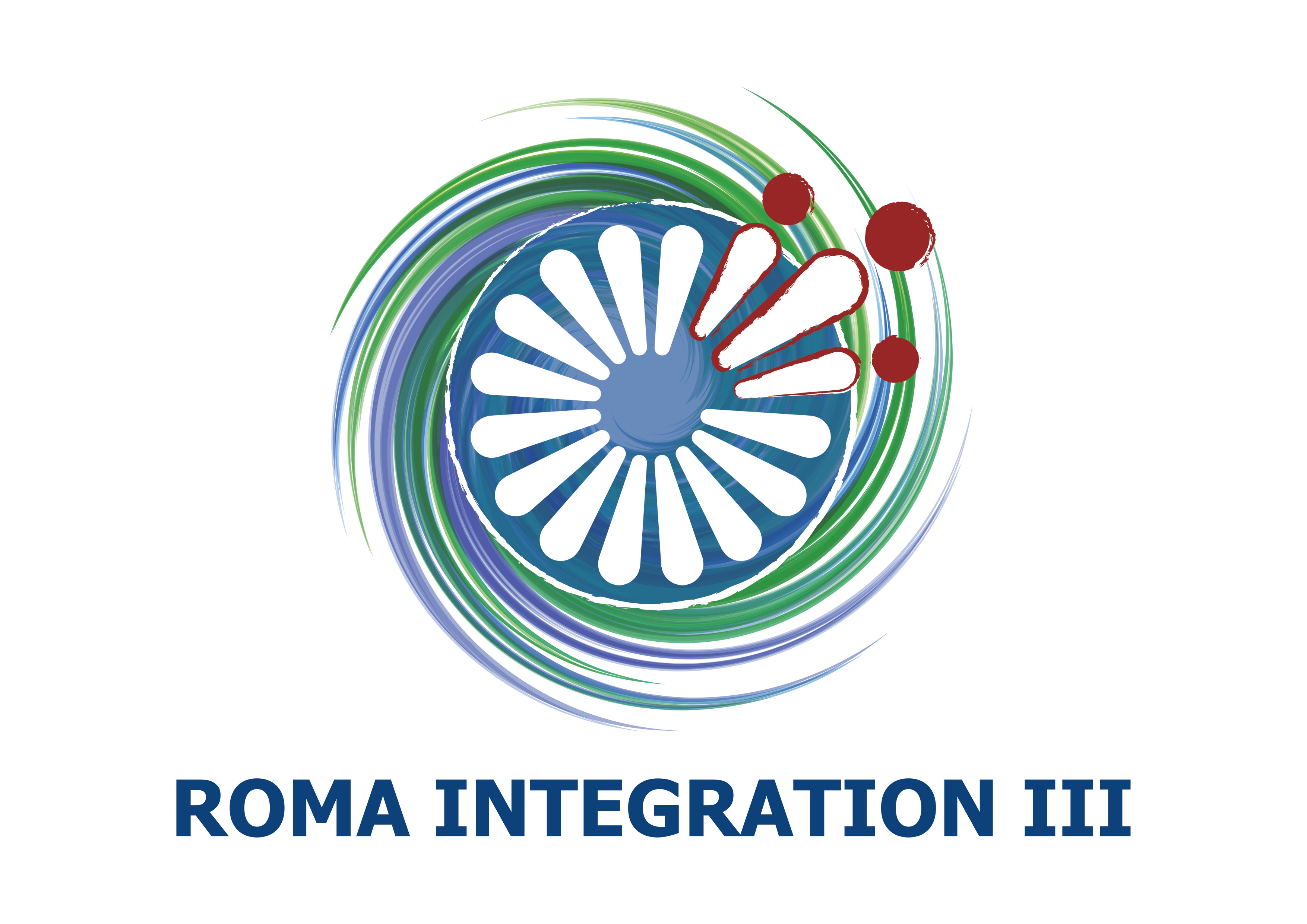The "Transforming Media Narratives on Roma" training brought together 30 media professionals from the Western Balkans and Türkiye to address the role of media in combating discrimination and antigypsyism. The event, organised within the framework of the EU-CoE Roma Integration III Joint Programme and in partnership with the European Roma Institute for Art and Culture (ERIAC) Serbia, highlighted the potential of both mainstream and social media to reshape narratives on Roma communities.
The training opened with the exhibition "Combing Through Time: Untangling Hidden Histories of the Roma Genocide". Media professionals, as well as other visitors representing relevant institutions, international organisations, civil society, and the Roma community had a chance to discover untold stories of resistance and everyday life in Roma communities before and during the Roma genocide in World War II.
Nadia Ćuk, Deputy Head of the Council of Europe Office in Belgrade and Bratislav Mitrović, Acting Director of ERIAC Serbia, opened the exhibition, emphasising the importance of inclusive remembrance culture. Ms. Ćuk emphasised:
“I am especially pleased that media professionals are present at this exhibition. Media professionals, along with artists, are especially important allies in nurturing of the culture of remembrance, promoting solidarity and building of a more just society.”
Mr. Mitrović stated:
"This exhibition is not just an act of remembrance but a space for learning and dialogue, inviting us to rethink the dominant narratives of World War II and include Roma voices and experiences in our shared history."
The training included two days of sessions on historic and contemporary perspective on antigypsyism; storytelling and visual representation as means to combat prejudices and stereotypes; use of mainstream and social media in transforming media narratives on Roma.
Key highlights from the training:
- Media professionals learned about the history and modern-day manifestations and dimensions of antigypsyism. They explored effective strategies to address antigypsyism while recognising the importance of combating stereotypes and biases part of ethical and inclusive reporting.
- The need of media professionals to build a regional network for Roma media workers has been expressed.
- Programmes and initiatives supporting independent and ethical media were presented with the aim to explore opportunities and encourage media reporting on Roma in the region.
- Visual representation was explored as a tool to tell inclusive and impactful stories about Roma communities. In addition, case studies on combating antigypsyism through social media were presented to illustrate the power of digital platforms in challenging stereotypes and amplifying Roma voices.
The experts Gilda-Nancy Horvath and Bela Varadi led the event, while international organisations such as Deutsche Welle Akademie, GIZ and ERIAC had presentations during the training sessions. The event concluded with a strong emphasis on cross-border collaboration and the ongoing need for independent and ethical media coverage of Roma issues across the Western Balkans and Türkiye.
This initiative marks a critical step in building a more just and inclusive media landscape for the Roma community.
The event was organised within the framework of the Roma Integration III Programme, financed by the European Union and the Council of Europe, and implemented by the Roma and Travellers Division of the Council of Europe.
Photo credits: Bela Varadi and Kenan Tair



